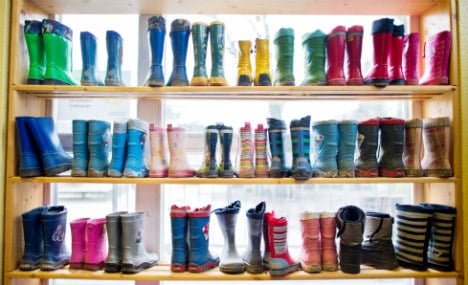Shoes were found to contain the most chemicals, Greenpeace said in a statement.
"Parents will often throw a pair of kids shoes on top of their milk and butter in their shopping carts. But the discount clothing is often contaminated with dangerous chemicals," Greenpeace's textile expert in Germany said.
Independent labs tested 26 articles of clothing for chemicals already regulated by the German textile industry. Many shoes, including the popular children's rubber boots made by Tchibo, were found to have carcinogens in them, Greenpeace said.
Items from Aldi were graded by the environmental group as "miserable", followed by Lidl as "bad". Rewe, Penna and Tchibo were given the grade of "being on their way", though none are poison free.
An Aldi-Nord spokesperson said that the supermarket chain was restricting the harmful chemical content of goods aimed at children to lawfully-regulated amounts.
Green Party politician Renate Künast, the head of the parliamentary Consumer Protection Office is calling for stronger EU laws against dangerous chemicals in clothing and wants more transparency in goods.
"We have to be more clear about which substances may not be used in goods meant for children," she told the ARD Morgenmagazin on Thursday, adding that concrete controls are difficult to maintain.



 Please whitelist us to continue reading.
Please whitelist us to continue reading.
Member comments